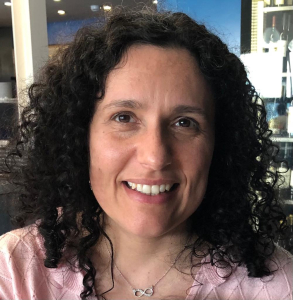Elisabete R. Silva, PI from the Bioactive and Multifunctional Materials Lab, at the Chemical for Biological Systems Group, is part part of the COST Action EURO-MIC ‘s Management Committee and is also the leader of the its Working group named Strategize Green Mitigation Methods.
Microbiologically induced corrosion (MIC) – the topic of this action – is a real problem as it affects several societal infrastructures in different industrial sectors. Also, in Europe, the information is fragmented due to the lack of bridges for knowledge sharing between the relevant stakeholders on the field. Because of this, Elisabete couldn’t be happier to be part of this action’s board: “I am very honored (…) to be able to contribute to this MIC challenge that our society is facing, both in networking MIC stakeholders and sustainability of their activities, and environmental protection.”
Currently, Elisabete and her team are studying the immobilization of biocidal agents in polymeric matrices – such as coatings – with an application in industrial systems preventing, for example, MIC. To be part of this COST action will also leverage Elisabete’s Lab own research activities, as the scientist refers: “As a member of this incredible and strong transdisciplinary network, me and all other researchers will be able to obtain knowledge transfer from industrial partners, (…) while also fostering their coexistence with a healthy environment and society.”
Besides the inputs Elisabete will bring from this professional experience, the scientist also believes that the multi and transdisciplinary atmosphere lived in BioISI can also be a valuable contribution she will give into the network as: “(…) it will support transnational collaboration activities among the European MIC Network, bringing together researchers and innovators to investigate MIC (…) and strengthen relationships between academia and industry.”
Find out more about BioISI’s role in EU-MICRO here.

Elisabete R. Silva

